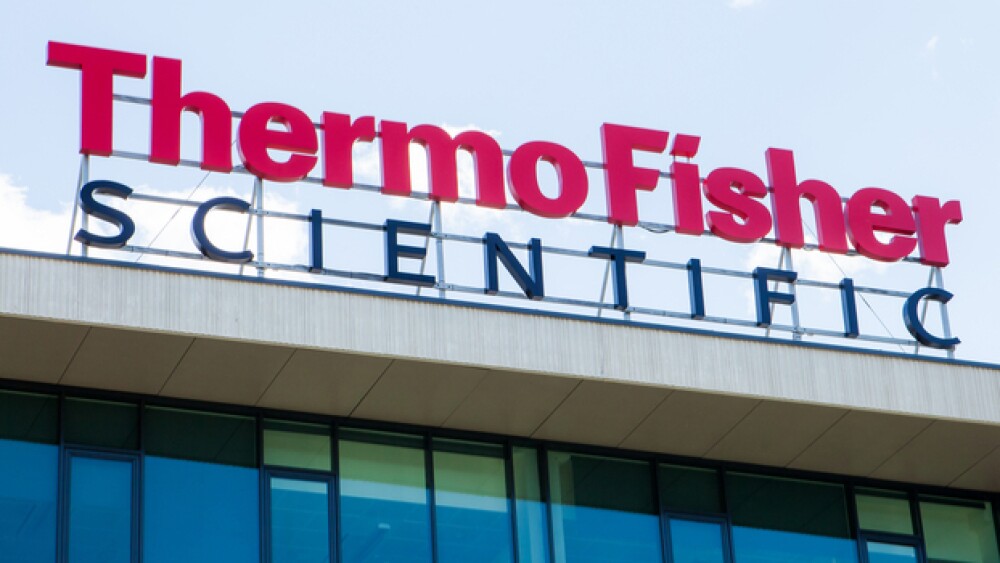For this year, 2020, it plans to invest more than $475 million in new capabilities and capacity.
KurKestutis / Shutterstock
Thermo Fisher Scientific, which acquired several companies over the last year, announced it is investing about $800 million across its pharma services business over the next two years. For this year, 2020, it plans to invest more than $475 million in new capabilities and capacity.
On March 3, 2020, Thermo Fisher acquired The Netherlands-based Qiagen NV for about $11.5 billion, as well as taking on $1.4 billion of net debt. Qiagen manufactures diagnostics diseases for a variety of diseases including cancer and, currently, the coronavirus that causes COVID-19.
In March 2019, Thermo Fisher bought Brammer Bio, a gene and cell therapy manufacturer, for $1.7 billion in cash. Brammer Bio is a contract development and manufacturing organization (CDMO) focused on manufacturing viral vectors for gene and cell therapies.
Of the expansion, Thermo Fisher noted that its St. Louis site finished its $50 million expansion, which doubled production capacity for biological drug development and commercial manufacturing. Its new Bioprocessing Collaboration Center at the site will open in July. At this location, multiple Thermo Fisher businesses will work together to develop new bioprocessing products, workflows and offer customer services.
After its acquisition of Brammer Bio, it is expanding its viral vector development and manufacturing capabilities. To do so, it is opening a new site in Lexington, Massachusetts and expanding locations in Cambridge, Massachusetts and Alachua, Florida. It also plans to open a new cell therapy development and manufacturing collaboration site in Princeton, New Jersey. It’s expected to come online sometime later this year.
The company is also expanding its drug product development and commercial capabilities, including offering commercial spray drying capabilities and scaling up its sterile drug development and commercial capabilities worldwide. It also is offering flexible continuous manufacturing capabilities that can manufacture four times the volume of oral solid dosage forms than standard lines. It has new commercial packaging capabilities and has a new QC Lab of the Future that integrates and automates workflows across Thermo Fisher.
“We’ve invested strategically to ensure that lack of capabilities, capacity or supply is never a reason medicines are delayed in reaching patients,” said Mike Shafer, president, Thermo Fisher’s pharma services business. “Our offering can provide solutions at all points along the pathway to commercialization, whether it’s an emerging biotech working on vaccine for a novel virus or a high-volume pharmaceutical manufacturer delivering necessary drugs at scale.”
Although the tie-in between Thermo Fisher and Qiagen was timely because of the coronavirus assay, Thermo Fisher was interested in the company long before the COVID-19 pandemic. Qiagen’s strength is in molecular diagnostics technology, including infectious disease testing and innovative sample preparation, assay and bioinformatics technologies. The COVID-19 tests are expanded versions of its QIAstat-Dx Respiratory Panel.
In terms of the ongoing pandemic, Thermo Fisher announced it is “closely monitoring the rapidly evolving situation and any potential impact on its businesses to ensure it can continue to manufacture and deliver critical products and services to customers. This includes carefully managing its inventory, production and supply chains. All pharma services are operational and are experiencing no significant disruptions.”





